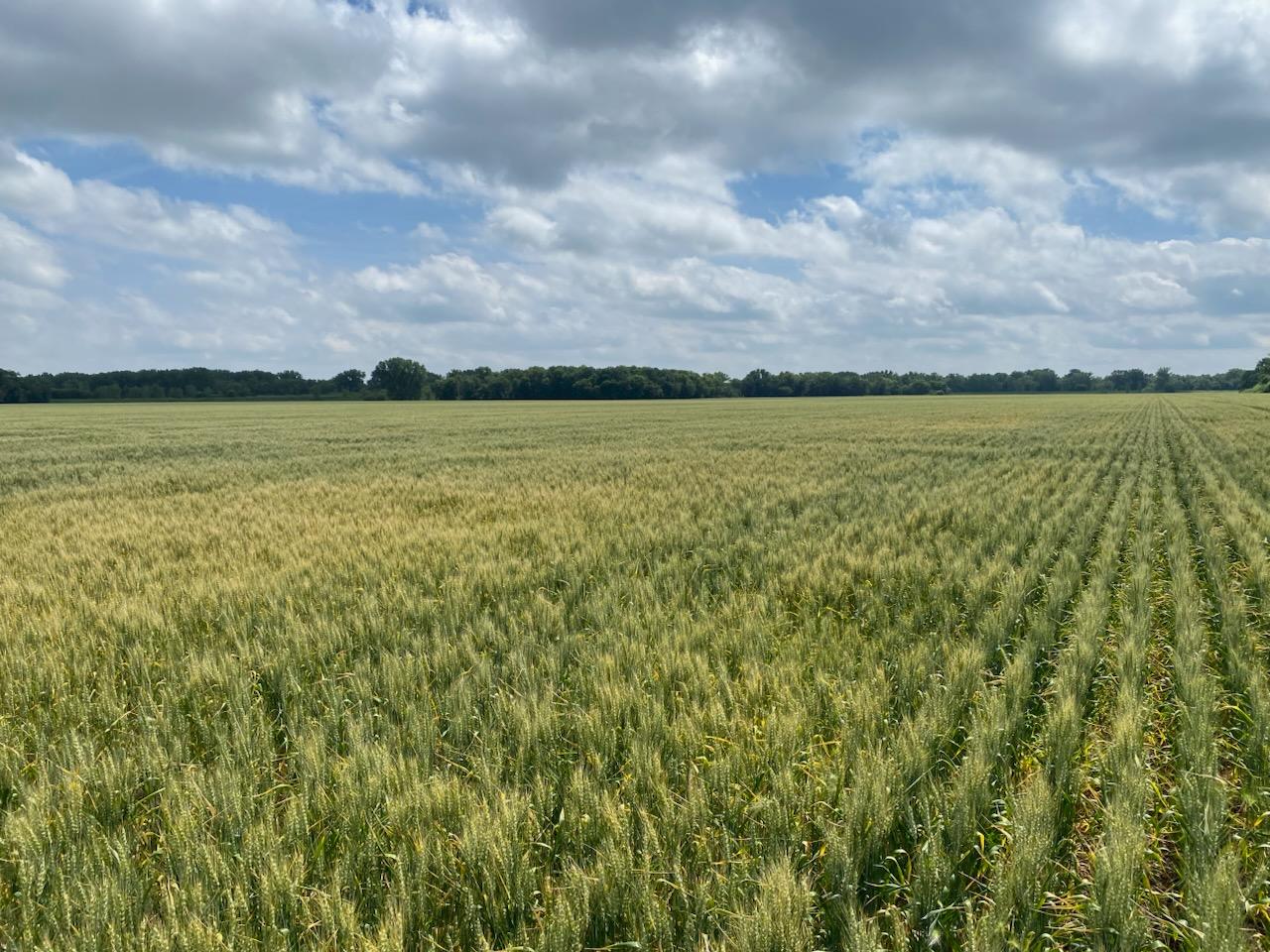A welcomed three-day rainfall across Manitoba’s Central Plains this week brought relief to some farmers after a dry start to the growing season.
However, the respite is uneven and ongoing U.S. trade uncertainty continues to cloud the horizon.
For Carl Stewart of Stewart Brothers Farms east of Poplar Point, the precipitation was timely but not yet a solution for all his crops.
Rain beneficial, but more still needed
Stewart, who notes his farm has fared better than many in the province during drier periods, acknowledged the rain's benefit while stressing his operation still needs more moisture.
"For us, it’s not dire," he says, and then continues, "We’ve actually been quite fortunate here for a good chunk of the year. If you recall our last conversation, when things are dry, we tend to do well. And then when things are wet, we tend not to do so well. So, things have been on the drier end, but we’re actually in a pretty good position right now. The rain is certainly welcome, but we’re not nearly as dire as in some other parts of the province. We’re a little on the drier end than perfect, but we certainly have nothing to complain about in our neck of the woods."
Despite this relative advantage, Stewart emphasizes that his crops still require significant rainfall. He clarifies that more precipitation would be beneficial, not detrimental, at this stage.
"No, we could definitely use a good soak," he notes, "And it should be very welcome; even an inch and a half. The beans definitely need to drink, so it’s certainly welcome. And then our canola is pretty much done flowering. So the little bit of rain is welcome to help with that as well. I'm thinking we could use an inch or so, but we're certainly not deprived by any means."
Stewart also observed that recent wildfire smoke seemed to moderate temperatures during a recent hot spell, potentially aiding his canola during peak flowering, though he couldn't confirm broader impacts from increased carbon.
Trade headaches persist
While weather provides immediate challenges, the ongoing spectre of U.S. tariffs and unpredictable trade policies remains a significant source of frustration and planning difficulty. Stewart expressed little confidence in the situation clarifying.
"I don’t think there’s been any clarity necessarily. I think people are just becoming a bit more accustomed to the situation that we’re in," he states frankly.
He also notes that, "Outside looking in, [tariffs] don’t seem to be as bad as they were projected to be. But the problem, of course, is that it can change next week. I heard that they’re thinking about charging Canadians, or making Canadians apply for a visa to visit the country. Are we going to need a visa to go pick up parts? Is there a 24-hour exemption? Who knows?"
He highlights the core issue for farmers and businesses is that the constant flux prevents effective planning, noting that, "The biggest problem with this kind of stuff is it’s so much back and forth. We can’t plan accordingly. Other businesses can’t plan accordingly. And the tariffs, I don’t think there’s a whole lot of direction from the US either as far as what’s gonna stick. I don’t know what to make heads or tails of it."
Cautious optimism prevails
Despite the challenges, Stewart noted reasons for cautious optimism compared to the spring. Canola prices have improved, allowing for some forward sales, and the immediate farm outlook feels more stable.
"Canola wasn’t looking good, but it’s come back a fair bit. We were able to make some decent sales here for future deliveries. It kind of feels like it’s probably going to be a bit of an average year across the board; nothing to complain about. The situation at the farm looks considerably better than it did this spring, so I think there’s some reason to be optimistic."
Summing up the current climate, both meteorological and political, Stewart offered a pragmatic farmer's perspective, saying, "Every month there seems to be another issue. But at the very least, our ports are open, our railways are working, and people are going to work."
And, as optimistically as one could expect from one who knows the toils of farming, he surmises that, "Things could be worse. Put it that way. They’re not too bad."
Sign up to get the latest local news headlines delivered directly to your inbox every afternoon.
Send your news tips, story ideas, pictures, and videos to news@portageonline.com.
PortageOnline encourages you to get your news directly from your trusted source by bookmarking this page and downloading the PortageOnline app.
